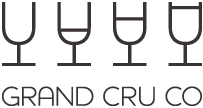Theresa May’s Brexit speech keeps wine drinkers and trade guessing
Prime minister Theresa May confirmed this week that the UK was willing to sacrifice membership of the EU single market and customs union in order to secure greater control over immigration and leave the jurisdiction of the European Court of Justice. There have been warnings that the UK’s position in the global wine market could fundamentally change if the country leaves the European single market as a result of its Brexit vote.
The UK is the world’s second largest wine importer in volume and value – behind Germany and the US respectively – and 55% of UK wine imports come from the EU, according to the Wine & Spirit Trade Association (WSTA). Exports going the other way have risen by 156% in the past decade, including non-EU wine shipped to the UK for bottling. Around 90% of the UK trade supported ‘remain’ because of single market access, according to a WSTA survey before last year’s referendum. Others might point out that the UK has a long history of importing and drinking wine, transcending various political and economic climates.
Whichever way you voted, May’s speech initially felt like the yearned-for certainty after the phony war of ‘red, white and blue’ Brexit.
But, in terms of detail, it was actually pretty light. Key questions linger, and it could take some time to get solid answers. While willing to leave the single market and customs union, May said that she still wanted a customs deal with EU member states that would allow goods to flow freely between UK ports and those on the continent. Perhaps someone lost the sheet of paper containing the crucial detail on what such a deal might look like – because it wasn’t made clear.
Nor was the position of EU citizens currently living and working in the UK; a good number of whom are employed in the country’s restaurant and wine sectors. May said that she wanted to sort this out as soon as possible, but there was no clarity on detail or timing. English wine producers, who rely strongly on EU vineyard workers at harvest time, have raised the issue as a concern. Still, the UK government has been attempting to charm parts of the wine trade. Chancellor Philip Hammond visited Accolade Wines last week, owner of Australian brand Hardys, to offer re-assurance.
There is a neat symmetry to this, because former exchequer secretary Damian Hinds visited Accolade’s large bottling plant in Bristol before last year’s EU referendum vote to warn that ‘leaving the EU could drain investment away from the UK’.
Penfolds wins trademark battle over ‘squatter’ in China
Penfolds owner Treasury Wine Estates has won a high court battle against a trademark squatter claiming ownership to a widely understood Chinese translation of the Australian wine brand's name - but the dispute doesn't end there. Beijing’s High People’s Court stripped a Spanish-Chinese individual called Li Chen of the right to use the ‘Ben Fu’ trademark, a translation of the Penfolds name.
The ruling is the latest twist in a dispute that has lasted for several years. It concerns a practice known as ‘trademark squatting’, which has also affected French wine producers in China, most notably Castel but also some Bordeaux Châteaux. But, the Penfolds saga in China has not ended. An associate of Li Chen obtained the Ben Fu name in 2009 and Treasury Wine Estates first applied to have that registration cancelled in 2012.
Beijing’s People’s court upheld Treasury’s wish, stating that Li Chen could not prove that she had ‘used the trademark commercially’. The court ruling in favour of Treasury Wine Estates merely means that the ‘Ben Fu’ trademark is again open to registration. The Australian wine giant must re-apply for the sole right to use the Ben Fu name, and the Beijing court said that Treasury was not guaranteed success.
China has become a significant growth driver for Treasury Wine Estates, and for Australian wine exports in general. A free trade deal signed between Australia and China is gradually reducing tariffs on Australian wine entering the Chinese mainland. Asia generates good returns for Treasury, accounting for 7% of the company’s wine sales by volume but 13% of its global net sales and 27% of its global operating profit in the company’s last financial year.
Pontet-Canet owner reveals name for Napa wine
The Tesseron family will honour the wine legacy of late Robin Williams after buying his former wine estate in Napa Valley - by keeping the vineyard name created by the actor nearly three decades ago. And it also wants to go biodynamic in California... The Mount Veeder estate bought by the Tesseron family of Château Pontet-Canet in Bordeaux is to bottle its Napa wine under the name Pym-Rae. This is the name given to the vineyard part of the Tesseron’s Villa Sorriso property by the previous owner, the late actor Robin Williams.
Williams planted the vineyard on the estate over 26 years ago, and chose the name by combining both middle names of his first two children.
The Tesserons revealed the name in a Christmas card sent out from Bordeaux, and noted that, ‘in keeping with the tradition of not changing the original name (of our estates), we are pleased to announce that our wine will therefore be called Pym-Rae’. Justine Tesseron said this week that the family was ‘concentrating on getting to know the terroir’. She added, ‘We hope to be certified in biodynamic in three years, and have already begun the process.’ The family is one of the main proponents of biodynamics in Bordeaux. Villa Sorriso is located on the west side of the Napa Valley, in the Mayacamas mountains, with a total surface of 259 hectares and 7.3 hectares of vines planted to Cabernet Sauvignon, Cabernet Franc and Petit Verdot.
Alfred and Melanie Tesseron, along with their technical director Jean-Michel Comme, are currently introducing biodynamic farming to the vineyard, following their long-term adaption of this approach in Bordeaux.




